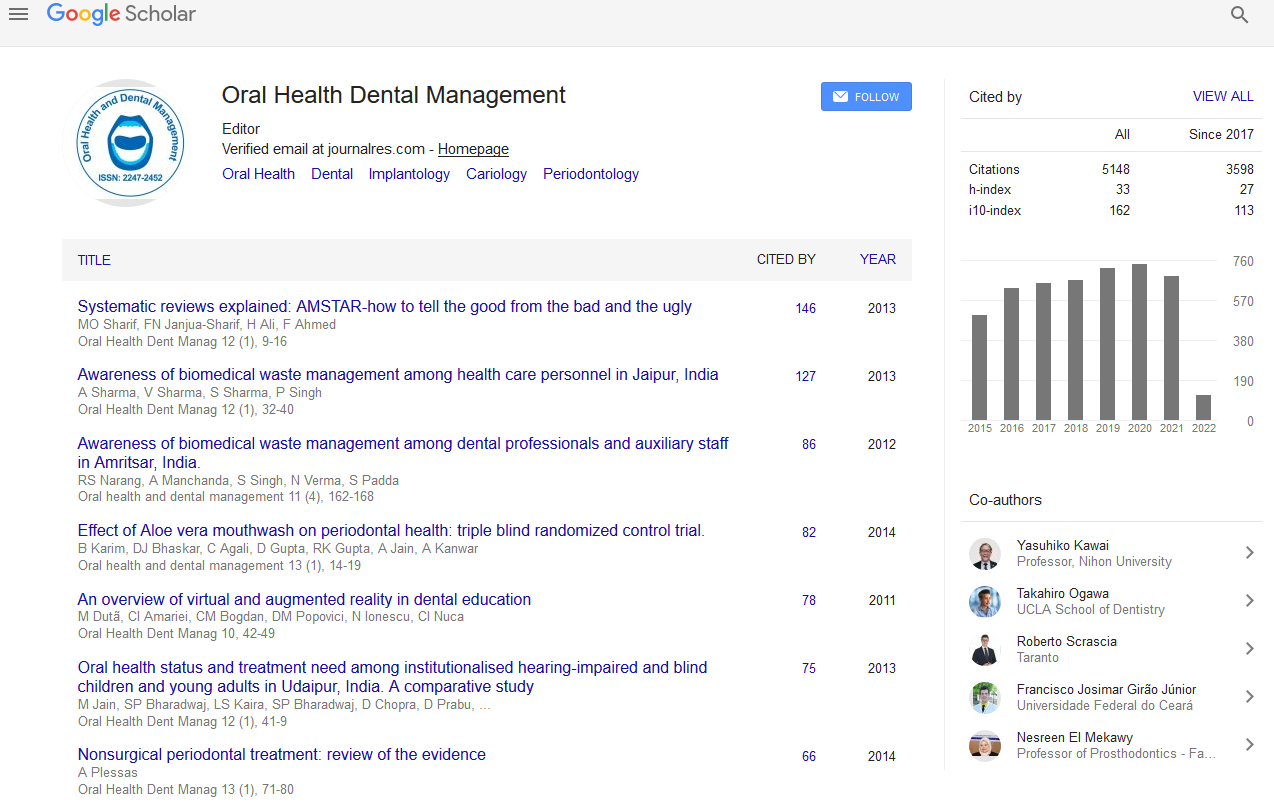Indexed In
- The Global Impact Factor (GIF)
- CiteFactor
- Electronic Journals Library
- RefSeek
- Hamdard University
- EBSCO A-Z
- Virtual Library of Biology (vifabio)
- International committee of medical journals editors (ICMJE)
- Google Scholar
Useful Links
Share This Page
Journal Flyer

Open Access Journals
- Agri and Aquaculture
- Biochemistry
- Bioinformatics & Systems Biology
- Business & Management
- Chemistry
- Clinical Sciences
- Engineering
- Food & Nutrition
- General Science
- Genetics & Molecular Biology
- Immunology & Microbiology
- Medical Sciences
- Neuroscience & Psychology
- Nursing & Health Care
- Pharmaceutical Sciences
Abstract
Effect of Short-term Steroid Use (Prednisolone) on Bone Healing around Implants: An Experimental Study on Dogs
Jaber Yaghini, Ahmmad Moghareh Abed, Mozhgan Izadi, Reza Birang, Nakisa Torabinia, Mohammad Tavakoli
Introduction: Prednisolone is a glucocorticoid used for treatment of immune-mediated inflammatory disorders such as rheumatoid arthritis and lupus erythematosus. There is no consensus regarding the effect of short-term steroid use on implant osseointegration. This study aimed to evaluate the short-term effect of prednisolone on the osseointegration process in dogs. Materials and Methods: The 2nd, 3rd, and 4th mandibular premolar teeth of 8 mature male mixed-breed dogs were bilaterally extracted under general anesthesia. After 3 months of healing, the dogs were allocated into study (receiving 4 mg/day prednisolone for 4 weeks followed by 2 mg/day for another 4 weeks) and control groups (4 dogs per each group). Six implants (bone level) were inserted in the mandible of each dog. In 4 dogs (2 in each group), the reverse torque and the bone-implant contact (BIC) were evaluated at 1 week postoperatively and in the remaining dogs at 4 weeks. Data were analyzed using two-way ANOVA with 95% confidence interval. Results: The reverse torque of all implants at 1 and 4 weeks postoperatively was at the highest value of implant ratchet. Microscopic evaluation revealed that the BIC was significantly greater in controls in comparison to the prednisolone group (P-value<0.05). In addition, the BIC of both groups significantly increased at 4 weeks compared to 1 week (P-value<0.05). The newly formed bone around implants at 1 and 4 weeks postoperatively was woven and lamellar, respectively. Conclusion: Prednisolone has the potential to disrupt the osseointegration process.

